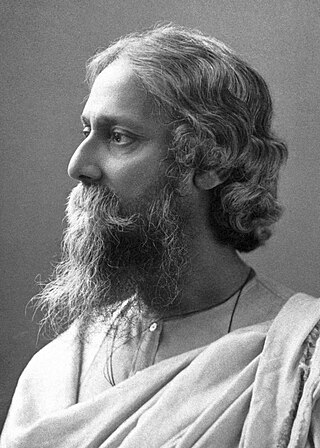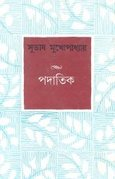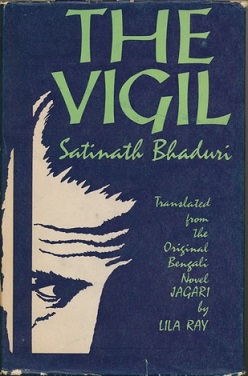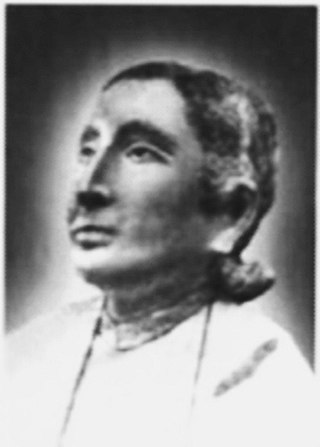Indian poetry and Indian literature in general, has a long history dating back to Vedic times. They were written in various Indian languages such as Vedic Sanskrit, Classical Sanskrit, Ancient Meitei, Modern Meitei, Telugu, Tamil, Odia, Maithili, Kannada, Bengali, Assamese, Hindi, Marathi and Urdu among other prominent languages. Poetry in foreign languages such as English also has a strong influence on Indian poetry. The poetry reflects diverse spiritual traditions within India. In particular, many Indian poets have been inspired by mystical experiences. Poetry is the oldest form of literature and has a rich written and oral tradition.

Bengali literature denotes the body of writings in the Bengali language and which covers Old Bengali, Middle- Bengali and Modern Bengali with the changes through the passage of time and dynastic patronization or non-patronization. Bengali has developed over the course of roughly 1,300 years. If the emergence of the Bengali literature supposes to date back to roughly 650 AD, the development of Bengali literature claims to be 1600 years old. The earliest extant work in Bengali literature is the Charyapada, a collection of Buddhist mystic songs in Old Bengali dating back to the 10th and 11th centuries. The timeline of Bengali literature is divided into three periods: ancient (650–1200), medieval (1200–1800) and modern. Medieval Bengali literature consists of various poetic genres, including Hindu religious scriptures, Islamic epics, Vaishnava texts, translations of Arabic, Persian and Sanskrit texts, and secular texts by Muslim poets. Novels were introduced in the mid-19th century. Nobel laureate Rabindranath Tagore is the best known figure of Bengali literature to the world. Kazi Nazrul Islam, notable for his activism and anti-British literature, was described as the Rebel Poet and is now recognised as the National poet of Bangladesh.

Jagadish Gupta was an Indian poet, novelist and short story writer. Known for his realistic view of life, strange character portrayal and unique narrative style, he was one of the major exponents of modern Bengali literature.
Sombhu Mitra was an Indian film and stage actor, director, playwright, reciter and an Indian theatre personality, known especially for his involvement in Bengali theatre, where he is considered a pioneer. He remained associated with the Indian People's Theatre Association (IPTA) for a few years before founding the Bohurupee theatre group in Kolkata in 1948. He is most noted for films like Dharti Ke Lal (1946), Jagte Raho (1956), and his production of Rakta Karabi based on Rabindranath Tagore's play in 1954 and Chand Baniker Pala, his most noted play as a playwright.
Nationality words link to articles with information on the nation's poetry or literature.
Edappally Raghavan Pillai was an Indian poet of Malayalam literature and a close associate of Changampuzha Krishna Pillai. The pair, the front-runners of romanticism in Malayalam, was considered by many as the Shelley and Keats combination of Malayalam poetry. Kesari Balakrishna Pillai compared Pillai to the Italian poet, Giacomo Leopardi.
Akinchan Chakrabarty was a Bengali poet. He wrote three narrative poems: Parvatir Sankirtan or Chandir Nutan Mangal, Shitala-Panchali and Ganga Mangal. He was greeted by the Brahmins as Kavindra and lived at Bengaral village near Ghatal in modern-day Paschim Medinipur district in the Indian state of Paschimbanga.
Aju Gossain was a Bengali poet who was known for his parodies of Ramprasad Sen’s songs. Not much about him is known except his works, not even his real name which is presumed to be either Ayodhyanath or Ayodhyaram Goswami, while Jogendranath Gupta assumed that his real name might be either Ajay Goswami or Achyut Goswami or Rajchandra Goswami.
Khelaram Chakrabarty was a Bengali poet and is considered one of the earliest poets of Dharmamangalkavya tradition. His poem, Gourkavya, which is now available only in fragments, was written in 1527. It is assumed by the historians that he lived at Badangunge village near Arambagh in modern-day Hooghly district in the Indian state of Paschimbanga.

Padatik first published in 1940 is a Bengali book of poems written by Subhash Mukhopadhyay. This was Mukhopadhyay's first published book. This book created a storm in Bengali literature. Mukhopadhyay wrote this book as a representative of a political party. Mukhopadhyay in his personal life was a consistent Marxist. In this book, poet showed his zeal to redeem the poor and suffering masses from exploitation.
Kato Ajanare is a Bengali novel written by Mani Shankar Mukherjee. This was Shankar's first novel which mainly deals with author's memories of Mr. Barwell, a renowned Barrister of the Calcutta High Court.
Kumar Roy (1926–2010) was a Bengali theatre actor, director and playwright. In 1983 he won the Sangeet Natak Akademi Award. He was associated with the group Bohurupee. In 1989 he directed the re-creation of the classic play Nabanna (1948). He was the President of the PashchimBanga Natya Akademi from 2006 till his death in 2010. Kumar Roy was also Professor of Drama at Rabindra Bharati University, Kolkata and Visiting Professor at Sangeet Bhavan, Visva-Bharati, Santiniketan.

Sisir Kumar Das (1936–2003) was a linguist, poet, playwright, translator, comparatist and a prolific scholar of Indian literature. He is considered by many as the "doyen of Indian literary historiographers". Almost singlehandedly Das built an integrated history of Indian literature composed of many languages, a task that had seemed to many important scholars of Indian literature to be “a historian’s despair”. His three volumes A History of Indian Literature is credited for having devised hitherto absent methods necessary for situating diverse Indian literary cultures in history. Apart from this, another monumental work in Das’ scholarly oeuvre is the multi-volume English Writings of Rabindranath Tagore, edited by him.
Ananda Chandra Barua (1907–1983) was a writer, poet, playwright, translator, journalist and actor from Assam. He is popularly known as Bokulbonor Kobi in Assamese literacy society. He was honoured with, most notably the Padma Shri title and Sahitya Akademi award.
Nagendra Narayan Choudhury (1881-1947) was a short story writer and essayist from Assam. He was noted for his contribution to the field of Short stories and essays in the Assamese literature during the years of Awahon. He was elected as a president of the Asam Sahitya Sabha in 1931 held at Sivasagar district.

Jagari or Jagori is a Bengali novel written by Satinath Bhaduri. The novel is considered to be a master-piece of Indian literature and it was first published in 1945. It is a semi-autobiographical novel and it is set in the 1940s's during the Quit India Movement.
Subodh Chandra Sengupta was an Indian scholar, academic and critic of English literature, known for his scholarship on Shakespearean works. His books on William Shakespeare, which included Aspects of Shakespearian Tragedy, Shakespearian Comedy and Shakespeare's Historical Plays are critically acclaimed for scholarship and academic rigor. He was a professor in the Department of English Language and Literature at Presidency College, Calcutta, and after retirement from Presidency College, became Professor of English Language and Literature at Jadavpur University, Calcutta, as well as a professor of English literature at Ramakrishna Mission Residential College, Narendrapur, an autonomous college in Greater Calcutta under the University of Calcutta. The Government of India awarded him the third highest civilian honour of the Padma Bhushan, in 1983, for his contributions to literature and education.

Rangalal Bandyopadhyay was a Bengali poet, journalist, and author.
Langal was a Bengali leftist-literary magazine published from Kolkata in the early 20th century. It was edited by Kazi Nazrul Islam.
Asitkumar Bandyopadhyay(3rd June,1920 – 21 March, 2003) was historian of Bengali literature, professor, researcher and former president of Paschimbanga Bangla Akademi. He got famous due to his book Bangla Sahityer Itibritta which is published in nine volumes.






